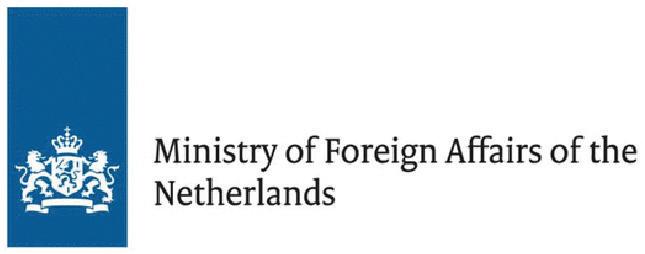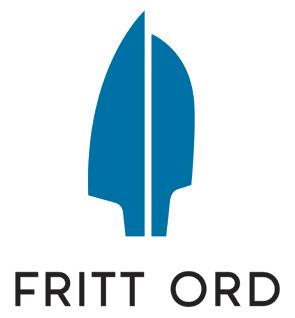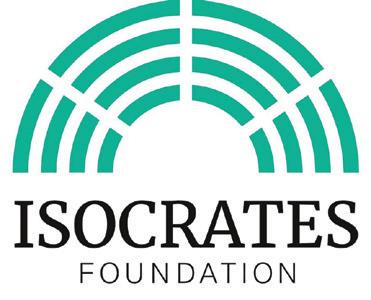

ACTIVITY REPORT 20 23
www.einnetwork.org
Red underlined text indicates hyperlinks active in the electronic version of this document.
Copyright: © 2024 EIN
Design & photo front cover page: Alain Fritsch - www.alainfritsch.fr
In the course of 2023, EIN continued its core mission: to advance the timely and effective implementation of the judgments of the European Court of Human Rights. It has done so by providing support to domestic human rights organisations and human rights lawyers across Europe, and by undertaking its own reporting and advocacy to make sure that implementation of human rights judgments remains on the agenda of the Council of Europe, the European Union, and national authorities, including national human rights institutions.

Our Secretariat trains and provides legal advice to an ever-increasing number of human rights organisations across Europe (see section 4.2). We continuously observe the impact of this work on the number and the quality of the public documentation and reporting of the implementation of human rights judgments in Europe. Thanks to our advocacy, implementation of the judgments of European Court of Human Rights is more visible not only in national settings, but also at the level of the European Union, in the European Commission’s Rule of Law Reports (see section 2.1).
In 2023, EIN was able to secure funding to undertake a major collaborative project on Freedom of Expression (see section 2.2). This project aims to enhance the implementation of human rights judgments pertaining to all aspects of freedom of expression in all member States of the Council of Europe. These judgments are not effectively and timely implemented across multiple of the Council of Europe member States, which affects not only the rights of all public watchdogs, but also of ordinary citizens. The importance of this project cannot be understated, given that implementing freedom of expression judgments of the Strasbourg Court is central to the promotion of broad-minded and tolerant democratic societies in Europe.
In 2023, we bid farewell to George Stafford, the Director of EIN, who set off on the next phase of his professional journey. I would like to extend my appreciation for his foundational contributions, which have significantly consolidated EIN as the leading European civil society organisation in the field of human rights judgments’ implementation. I extend a warm welcome to Ioulietta Bisiouli, who has taken on the role of EIN Director in August 2023 (see section 5.2).
Professor Dr. Başak Çalı, EIN Chair2023: A year of hope but also of major challenges for the implementation mechanism
In 2023, EIN continued operating amidst an environment of increasingly challenging circumstances for the Convention system in general and the implementation mechanism in particular.
Against the grim background set by Russia’s continued war of invasion against Ukraine for a second full year, a democratic backsliding and the erosion of the rule of law in Europe, as well as a sharp rise in populist rhetoric, further leading to an increase in counter-productive calls for the disengagement of certain countries from the Convention mechanism, 2023 kicked off in a spirit of reserved hope and increased anticipation. On 16-17 May 2023, the Council of Europe member States gathered for their 4th Summit of Heads of State and Government in Reykjavík, Iceland, aspiring to recommit to the Council of Europe values that underpin democratic security in our fast-changing continent. The outcome of the high-level exchanges resulted in the Reykjavík Declaration (which EIN had the opportunity to influence, see section 3.1), whereby the 46 member States confirmed anew their adherence to the organisation’s core aims and values: democracy, human rights and the rule of law.
Importantly, the Reykjavík Declaration acknowledged the implementation mechanism as a main cornerstone of the effectiveness of the Convention system. This resulted in some first concrete steps taken towards increasing support for this mechanism (including the adoption by the CM, in November 2023, of the new Council of Europe Programme and Budget for 2024 – 2027, allocating additional amounts of EUR 0.3M in 2024 and EUR 1.2M in 2025 to work on the execution of judgements; and the publication for the first time, in December 2023, of the CM’s indicative annual planning for the Human Rights meetings (see EIN’s contribution to this development below, see section 3.2).
The above notwithstanding, fast forward to the end of the year, the 46 member States were already largely failing to walk the talk in a decisive manner. Throughout the second half of 2023, the international community continued waiting in vain for the vociferous pledges of the Reykjavík Declaration to translate into a genuine and strong political support towards remedying the root causes of the ineffectiveness of the implementation mechanism. In the most flagrant and worrisome example of the significant gap between the members States’ words and deeds, the Council of Europe institutions in general and the Committee of Ministers in particular were remaining, until the end of 2023 and beyond, deafeningly silent in the face of the grim development of the sentencing of human rights defender Osman Kavala to life imprisonment (as a reminder, this development constituted a striking and unprecedented incident of disrespect by Türkiye of its Convention-related obligations, emanating from a December 2019 ECtHR ruling ordering Kavala’s immediate release from unlawful pre-trial detention, and a July 2022 judgment -rendered in the context of infringement proceedingscondemning Türkiye for its failure to implement the 2019 judgment). Against this backdrop, EIN continued being a strong advocacy voice calling for tangible, result-oriented actions with a view to preventing the grave risk of the Reykjavík Declaration remaining a dead letter, which would further contribute to the discrediting of the Convention system in the long run (see section 3.1).
Despite having been expelled from the Council of Europe on 16 March 2022, and although remaining bound to implement ECtHR judgments against it concerning violations occurring up until 16 September 2022, the Russian Federation carried on, in 2023, with its policy of non-engagement with the Committee of Ministers (which nevertheless continues to monitor the implementation of Russian cases, and to issue decisions on them in quarterly CM/DH meetings). The Council of Europe’s explicit encouragement to the Russian civil society for continued submissions (with a view to providing updated information on Russian cases pending implementation) remains effective, in the hopes that the ECtHR implementation monitoring process will continue serving as a concrete
record of Russia’s legally mandated human rights obligations. In December 2023, an information document setting out the individual and general measures needed for the effective implementation of all pending Russian cases was published by the Committee of Ministers. Furthermore, registers of outstanding just satisfaction awards in individual cases against Russia and in the inter-state cases were also made available.
Although an important number of Russian civil society organisations have ceased engagement with the implementation mechanism whatsoever, some of them have considered it worthwhile to continue making submissions to the process, notwithstanding the high security risk that this activity entails. The plight of exiled Russian human rights defenders seeking to ensure the upholding of freedom of expression in Russia was heard loud and clear at EIN’s conference organised in Leipzig in the context of our freedom of expression project (see section 3.2). EIN will continue supporting actively our Russian colleagues who wish to maintain engagement with the implementation mechanism.
Section 1: Turning judgments into rights
1.1. Justice for a victim of domestic violence in M.G. v. Türkiye
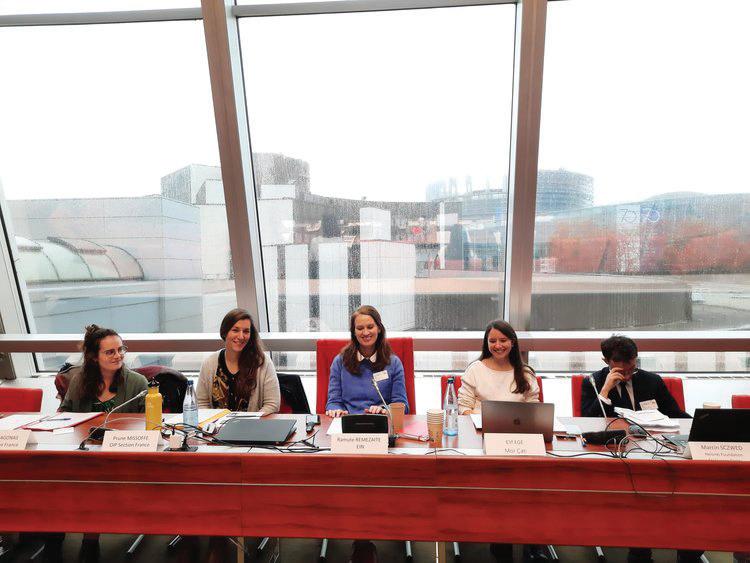
The Opuz v. Türkiye group of cases concerns the authorities’ failure to provide protection from domestic violence. The Mor Çatı Women’s Shelter Foundation has been engaging with the implementation process regarding this group of cases since 2020, through submissions supported by EIN (available here, here, here, here, here and here). Besides their contribution on general measures, the NGO has consistently made recommendations in respect of the M.G. v. Türkiye case, one of the repetitive cases in the group, criticising the length of proceedings against the applicant’s abusive ex-husband and the authorities’ passivity in bringing him to justice (and, thus, the failure to ensure the applicant’s safety). The NGO’s submissions had had an impact on the Committee’s decision in December 2022, which “urged the authorities to ensure the swift conclusion of the proceedings in [this] case, in line with Convention standards”, while also inviting them “to conduct a thorough risk assessment [through] the competent bodies as to the applicants’ situation and safety.” In November 2022, EIN had also made a briefing to the Committee of Ministers regarding the implementation of this case; the NGO once again highlighted to the Committee that the applicant’s safety continued to be at risk, as the perpetrator was still not in detention despite having been sentenced by a first-instance court.
In November 2023, following a risk assessment, a preventive injunction was issued against the applicant’s ex-husband, ordering him to not approach the applicant and to not use threatening, insulting and humiliating behaviours towards her. Further, a criminal investigation was initiated against the ex-husband on the charge of uttering threats. In December 2023, the perpetrator was sentenced to 15 years in prison.
“We would like to share some good news with you. The case of MG, which has been ongoing since 2006 within the Opuz Group of cases, and where the perpetrator had not received any punishment until now, was re-examined last week. The perpetrator has been sentenced to 15 years in prison. We believe that the increased pressure on the state after the shadow report process has had an impact. Thank you for your solidarity throughout the process.”
Mor Çatı Women’s Shelter Foundation
1.2.1. Romania ratifies the Convention on Elimination of Harassment and Violence in the World of Work
EIN has provided support to the Association for Gender Equality and Freedom in engaging with the implementation process in respect of the C. v. Romania judgment, which concerns the authorities’ failure to offer protection against sexual harassment at the workplace. The NGO was actively involved in the implementation process at a very early stage (immediately after the judgment became final), succeeding in ensuring the case’s classification under the enhanced supervision procedure. In their submissions, available here and here, our colleagues had been calling for the ratification of the International Labour Organisation’s (ILO) Convention no. 190 concerning the Elimination of Violence and Harassment in the World of Work in both their submissions, as well as at national level.
Importantly, in November 2023, the Romanian Government adopted the legislative proposal for the ratification of this treaty, thus taking an important step towards ensuring the non-repetition of the violation found by the ECtHR in the C. case.
1.2.2. Serbian reform on enforcement of judicial decisions against socially/State-owned companies
The R. Kacapor group of cases, pending implementation for almost 16 years, concerns the nonexecution of domestic judicial decisions rendered in the applicants’ favour against socially/Stateowned companies, ordering them to pay their debts for salary arrears or their commercial debts. In November 2022, EIN had supported the Lawyers Committee for Human Rights (YUCOM) in making a submission in respect of this group of cases. The NGO had provided information on the dysfunction of the Workers compensation system and the number of workers to be compensated, calling, inter alia, for the establishment of an effective mechanism that can provide harmonized, swift and just redress to all workers. At the following CM-DH meeting, the Committee “urged the authorities to promptly engage in consultations […] on the ways to move forward in order to fully and effectively execute this group of cases”.
In 2023, concrete impact became visible, as the Ministry of Justice initially established a working group for the preparation of a repayment scheme. Relevant legislative amendments were developed and adopted after carrying out a public consultation. All proceedings concerning the impugned companies that had not been completed by the date of entry into force of the amendments would henceforth be considered constitutional appeals to be decided by the Constitutional Court; the competent courts would be obliged to submit the case files thereto within 30 days as from the date of entry into force of the amendments. The legal analysis carried out by YUCOM contributed to these important legislative changes, which resulted in the introduction of a new remedy. EIN will continue offering support to its partners with a view to the adoption of the necessary general measures that remain outstanding in this context.
Section 2: Impact of EIN projects in 2023
2.1. Putting the implementation of ECtHR judgments on the EU’s rule of law agenda
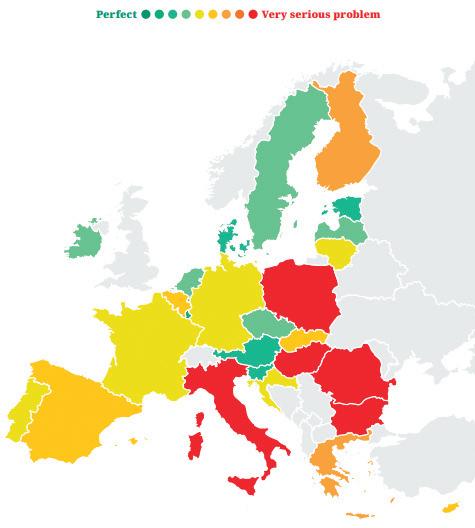
In 2023, EIN, in partnership with Democracy Reporting International (DRI), renewed its call for the European Commission’s (EC) rule of law report to continue including data on the level of non-implementation of judgments from the two key European courts: the European Court of Human Rights and the European Court of Justice. The 2023 report, which was unveiled during a public online event held on July 3rd, presented non-implementation data in respect of the 27 EU member States, as well as global statistics concerning the proportion of leading judgments in respect of these States that remained unimplemented in the last ten years (40%) and the average time required for implementation (5 years and 1 month). Inter alia, EIN recommended that the EC rule of law report set out recommendations to States in respect of which implementation of ECtHR and CJEU judgments in the areas covered by the report is pending.
In July 2023, the Commission published its relevant report and continued to include the assessment of the overall levels of implementation of ECtHR judgments in each of the 27 EU country chapters, noting its importance for upholding the rule of law. The EC made a number of important recommendations in relation to implementation problems also highlighted in the EIN-DRI report. By way of example, in 2023, the EIN-DRI report highlighted Croatia’s failure to “align its case law on defamation with the freedom of expression principles and the criteria laid down in the Court’s case law (Stojanovic v. Croatia).” In its turn, the EC recommended in its rule of law report that Croatia “make further efforts to address the issue of strategic lawsuits against public participation targeted at journalists, including by reviewing the legal provisions on defamation […] taking into account the European standards on the protection of journalists.” Furthermore, the EIN-DRI report showcased the need for Italy to resolve the long-standing problem of criminal convictions of newspaper directors for defamation. The EC rule of law report subsequently recommended that Italy continues “the legislative process to reform and introduce safeguards for the regime on defamation, the protection of professional secrecy and journalistic sources, taking into account the European standards on the protection of journalists.”
In March 2023, EIN presented the 2022 report to the LIBE Democracy, Rule of Law and Fundamental Rights Monitoring Group (DRFMG) within the European Parliament, in a session dedicated to the application and enforcement of ECtHR judgements. It was an opportunity to raise awareness about the levels of non-implementation of ECtHR judgments with the LIBE Committee, which expressed anew interest not only in respect of country-based data but also in the prospect of compiling and presenting statistics on thematic issues in the future. The European Commission has also followed-up on the communication with EIN to request additional information on enlargement countries.
These positive results were unequivocally linked to the arguments provided by the EIN-DRI report. At the time of drafting of the present report, the preparation of the latest edition of the EIN-DRI report for the year 2023 was underway.

2.2. Protecting Freedom of Expression by Supporting ECtHR Implementation
In June 2023, EIN launched a new large-scale project on freedom of expression, which aims to protect free speech in every country where there is a relevant ECtHR judgment pending implementation. The project focuses on addressing some of the most pressing challenges faced by European democracies, where free speech violations have become central to the crisis of democratic backsliding. This includes issues such as draconian defamation laws that silence journalists, the undue influence of state or state-affiliated entities on media ownership, and the alarming rise in violence against reporters.
Through this project, EIN aims at enhancing civil society’s engagement into the implementation process of ECtHR judgments by providing CSOs with comprehensive training, resources, mentoring and overall support in addressing the implementation challenges raised in the specific context of free speech- related judgments. By doing so, EIN seeks to empower the project beneficiaries and partners to advocate for and promote free speech reforms in their respective countries. Ultimately, EIN aspires to the extension of the project’s impact to the wider society, thus making every person enjoying the protection of the European Convention on Human Rights a secondary beneficiary of our project.
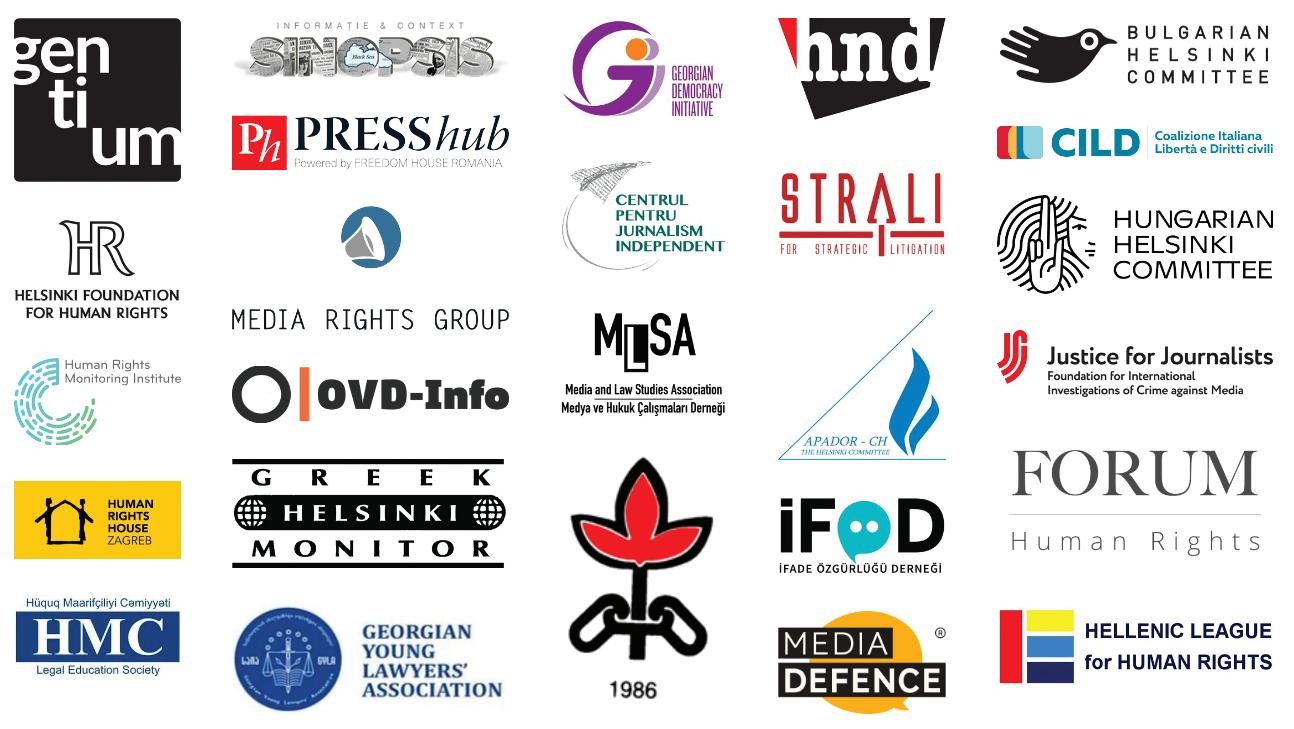
The project, funded by the Swedish Postcode Foundation, the Isocrates Foundation and the Fritt Ord Foundation is set to run for 2 years (June 2023 – May 2025). Over the summer 2023, EIN mapped all free speech ECtHR judgments pending implementation and ensured that as many of such cases as possible are being monitored by/ benefit from the engagement of a local partner. This resulted in the creation of a network of civil society organisations to take actively part in the implementation of the project.
In November, EIN held its training for staff from partner organisations, providing information about how to engage successfully in the implementation process at national and international level. The conference, which brought together about 50 experts from 26 European civil society organisations, academics, and journalists, addressed the complexities surrounding the implementation of ECtHR judgments related to freedom of expression in Europe, shedding light on the challenges faced by civil society in ensuring the execution of relevant judgments, and shared best practices for free speech advocacy. As such, this event was also an opportunity to further gather information for the best practices research note which has been drafted in view of a publication in the first semester of 2024.
Eight submissions on freedom of expression cases had already been submitted to the Committee of Ministers by NGOs-official participants to the project in the first six months of the overall twoyear-long duration of the project. Furthermore, as part of the project, two of the four cases that were presented at the civil society briefing for Permanent Representations to the Council of Europe, organised by EIN ahead of the 1483rd Committee of Ministers Human Rights Meeting (which took place in December 2023) concerned violations of Article 10 on freedom of expression.
Section 3: Addressing publicly the challenges linked to the nonimplementation of ECtHR judgments
3.1. EIN’s advocacy for the reform of the implementation mechanism by the Council of Europe and for a renewed commitment of the member States thereto
The Fourth Summit of the Council of Europe held in Reykjavík in March 2023 presented a crucial opportunity to renew an institution that is central to Europe’s future. EIN was deeply concerned about the outlook for this process and sent, ahead of the Summit, a Briefing Note to the members of the Committee of Ministers, setting out the need for reforms to improve the implementation of judgments of the European Court of Human Rights. EIN furthermore presented its proposals at the occasion of an NGO coordination event in the Hague, in March 2023. In their Reykjavík Declaration, member States eventually recalled the responsibility for complying with the judgments of the Court which is incumbent on the “executive, national and local authorities, national courts and national parliaments”. EIN was glad to see the renewed commitment of the Council of Europe to the implementation of judgments of the European Court of Human Rights. Many of these undertakings were in line with EIN’s proposals in its call for Reforms to Improve the Implementation of Judgments of the European Court of Human Rights in view of the Fourth Summit.
This positive result notwithstanding, effectively implementing the above undertakings remains an important challenge for Council of Europe member States. Throughout 2023, EIN continued to plead for the implementation of these commitments and for the member States’ increased adherence to the principle of timely and effective execution of the ECtHR rulings on the occasion of various highlevel advocacy events:
In October 2023, EIN participated to the celebratory conference organised on the occasion of the 10th anniversary of the European Network of National Human Right Institutions (ENNHRI) in Brussels. The EIN Director intervened to highlight the fundamental role NHRIs can play in effectively supporting the implementation process. While noting the currently inadequate engagement of NHRIs with the implementation mechanism, the EIN Director stressed that important progress can be achieved by the NHRIs’ more rigorous interaction with the Committee of Ministers through Rule 9 submissions at international level, and by their more active engagement in the planning and implementation of the general measures required to ensure compliance with the Court’s judgments at national level.
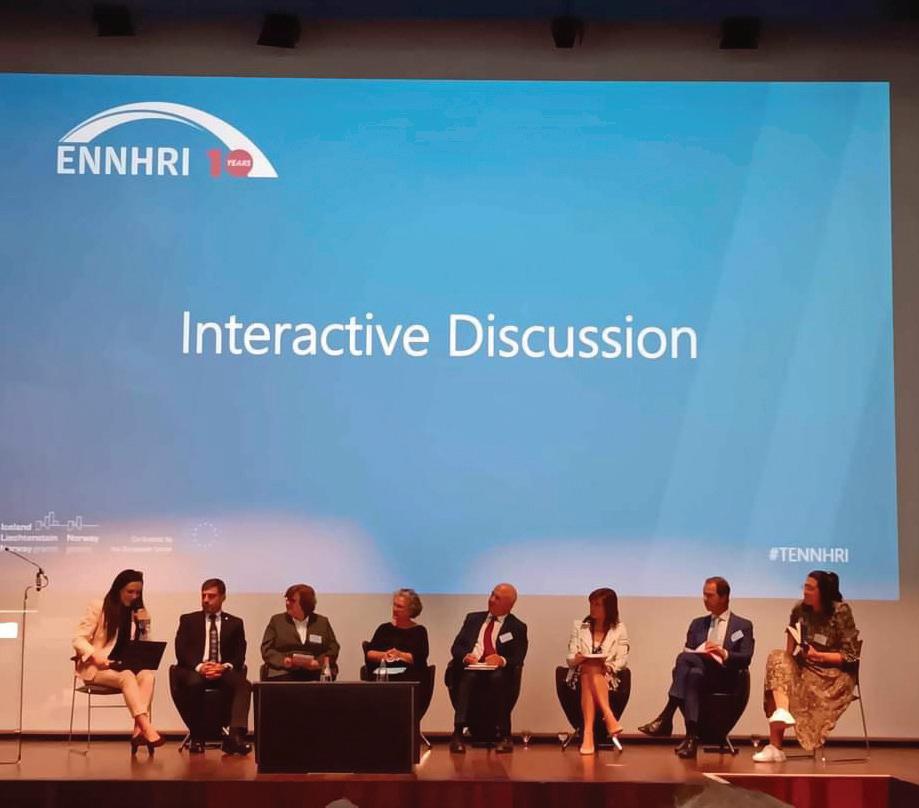
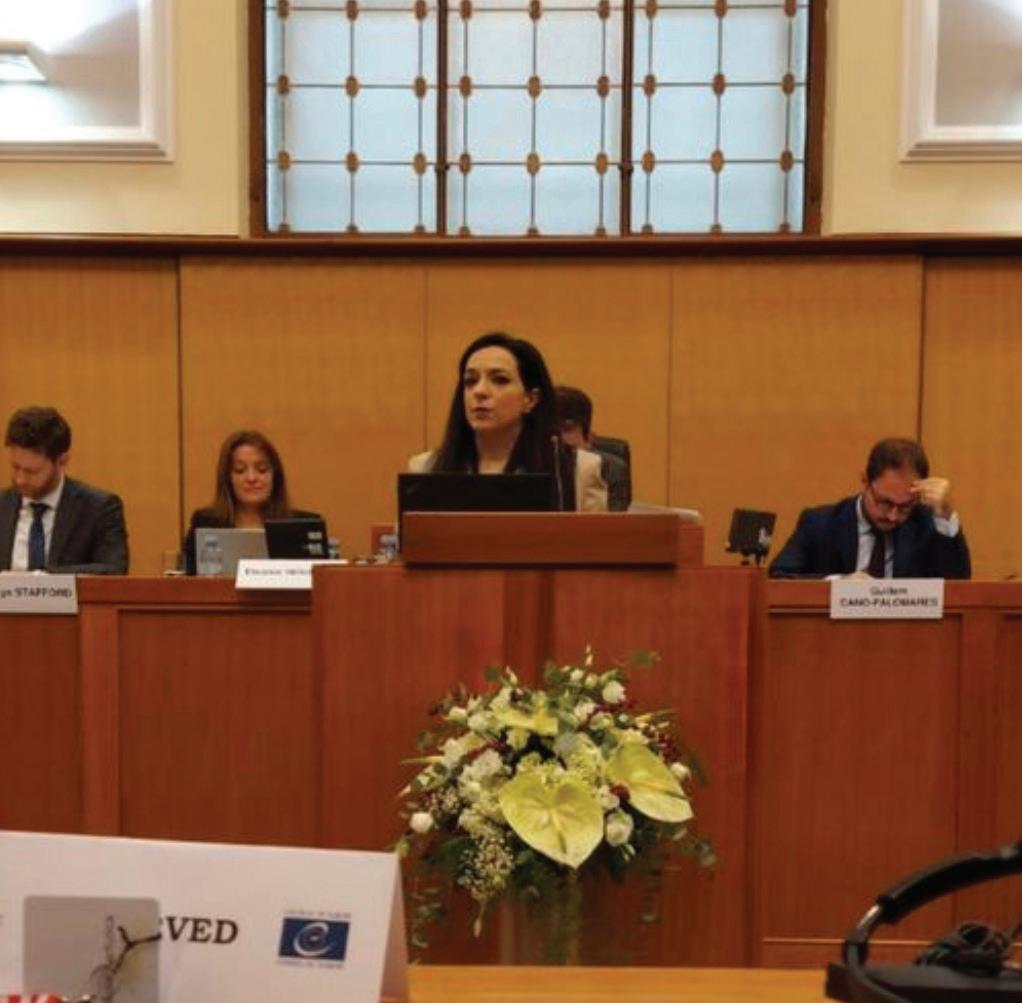
In November 2023, EIN was invited to contribute to a hearing organised at the Croatian Parliament in Zagreb by the Parliamentary Assembly of the Council of Europe (PACE) Subcommittee on the Implementation of Judgments of the ECtHR. Called upon to discuss the issue of unimplemented defamation judgments of the ECtHR and the need for legislative reforms, the EIN Director underlined that failure to implement ECtHR judgments which resulted from non-Convention-compliant domestic judgments on defamation claims irreparably damages democracy, erodes the supremacy of the rule of law at national level and undermines the Convention system at international level. She furthermore stressed the particular role parliamentarians can play in this effort, by proposing new legislation and amendments to resolve freedom of expression-related problems, by approving budgets to financially support such changes, and by creating the necessary space for independent authorities (NHRIs, Ombuds institutions), civil society and academic experts to contribute their knowledge from the field to the common effort to effectively implement relevant Court judgments.
In November 2023, EIN participated to the conference “Making Human Rights a Reality: Implementation of International Human Rights Obligations at National Level, organised by the Office of the Government Agent of the Czech Republic before the ECtHR. Speaking at this high-level event in Prague, which brought together representatives of the Czech administration and the judiciary, international judges, EU and CoE officials, and civil society, the EIN Director was called upon to delve into the main shortcomings of the implementation mechanism, albeit through a positive, solution-oriented lens. The Director placed emphasis on the inaccessible nature of the implementation procedure, the limited range of means available to the CM to put pressure on recalcitrant member States, and, most importantly, the lack of genuine political will for effectively addressing the root causes behind nonimplementation pockets of resistance as the main shortcomings of the implementation mechanism. She nevertheless called for the unequivocal recognition by all actors of the paramount importance of the Convention system and its implementation machinery, and highlighted the stringent need for CoE institutions, the CM in particular, to ensure its viability and effectiveness through decisive action demonstrating that disrespect for the Court’s judgments will not be tolerated.
3.2. Pleading for further transparency of the implementation process
Advocating for effective implementation of judgments through improved structures and processes, enhanced transparency, and greater participation of civil society is one of the key aspects of EIN’s mandate. Despite significant progress achieved in this direction since EIN started operating and thanks to its advocacy efforts, there is a constant need for bolder reforms of the implementation process to render it more transparent and accessible to external interlocutors interested in engaging therewith.
Since January 2023, a new section on “Upcoming missions by the Department” has been added to the homepage of the Department for the Execution of Judgments, providing information on dates of planned missions of DEJ lawyers in the CoE member States. EIN had been advocating for such information to be made public, with a view to increasing the foreseeability of DEJ’s country visits and the interaction of DEJ lawyers with NGOs present in the field. EIN welcomes this positive development and encourages all EIN members and partners to make use of this new source of information to strengthen their advocacy efforts aiming at the effective implementation of ECtHR judgments in their country.
Furthermore, since December 2023, the indicative annual work programme of the CM has also been made available online, which materialised another long-standing request of EIN. This important development is already showing its positive results, as it enables EIN, NGOs and all interested stakeholders to better plan their implementation-related advocacy activities, allowing advance knowledge about the scheduled next reviews of monitored cases.
3.3. EIN civil society briefings: Making NGO voices heard in Strasbourg
In 2023, EIN organised four civil society briefings, on 20 different cases, ahead of each Human Rights quarterly meeting of the Committee of Ministers, the body in charge of monitoring the implementation of ECtHR judgments. The countries covered through these briefings last year were Bosnia and Herzegovina, Bulgaria, Georgia, Greece, Hungary, Romania, Türkiye and the UK. On a thematic basis, the main issues at the heart of these briefings were violations to the rights to freedom of expression and freedom of association, pushbacks of asylum seekers, the protection of rights in detention, inadequate living conditions for asylum-seekers, treatment and care to patients in psychiatric establishments, and discrimination.
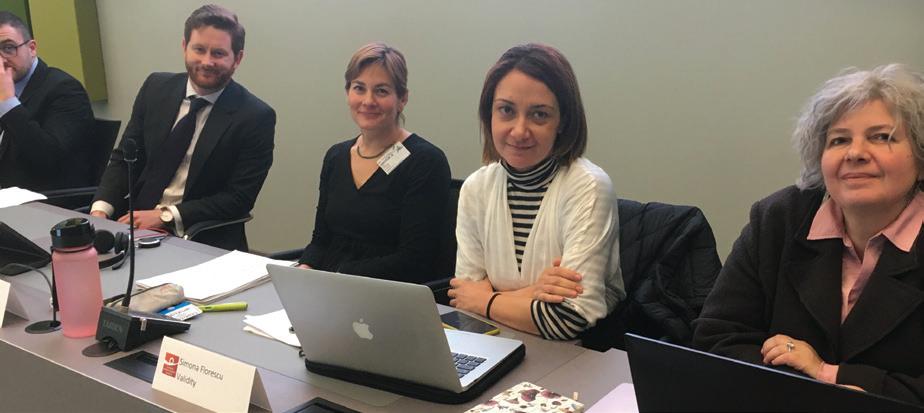
In February 2023, the first quarterly briefing focused on Oya Ataman v. Türkiye, Baka v. Hungary, Stanev v. Bulgaria, and Turkish freedom of expression cases (Öner and Türk v. Türkiye group), examined jointly together with the groups of Nedim Sener, Altuğ Taner Akçam, Artun and Güvener, and Işıkırık
EIN has been supporting the Validity Foundation in engaging with the implementation of the Stanev case (concerning, inter alia, the unlawfulness of the placement of the applicant, a person with mental disorders, in a social care home, the lack of judicial review of this decision, and the poor living conditions in the impugned facility), having reviewed and provided feedback on their submissions and assisted with putting forward new arguments in relation to the scope of implementation (available here, here and here). Following the February briefing to the Committee on the Stanev case, in which Validity argued that it is necessary to develop and implement strategies to ensure that persons with disabilities in family-type homes have a path to live in the community, the Committee expanded its position by stating that “new facilities” should be established in communities where “qualified staff and social services are available”. This decision constitutes a victory for Validity and for persons with disabilities in Bulgaria, as it established at the Committee of Ministers’ level that residential facilities cannot be built in isolated areas where persons with disabilities have no access to social services. Validity continues to advocate for this recommendation to be implemented in practice.
In May, the briefing dealt with cases concerning psychiatry and the rights of persons with mental disabilities in Romania - the Cristian Teodorescu v. Romania group and the Parascineti v. Romania judgment, the N. v. Romania and R.D. and I.M.D. v. Romania cases, and the Centre for Legal Resources on behalf of Valentin Campeanu v. Romania case. Minority Rights Group also briefed the delegates about the Sejdic and Finci v Bosnia and Herzegovina case, which concerns discrimination and the right to free elections.
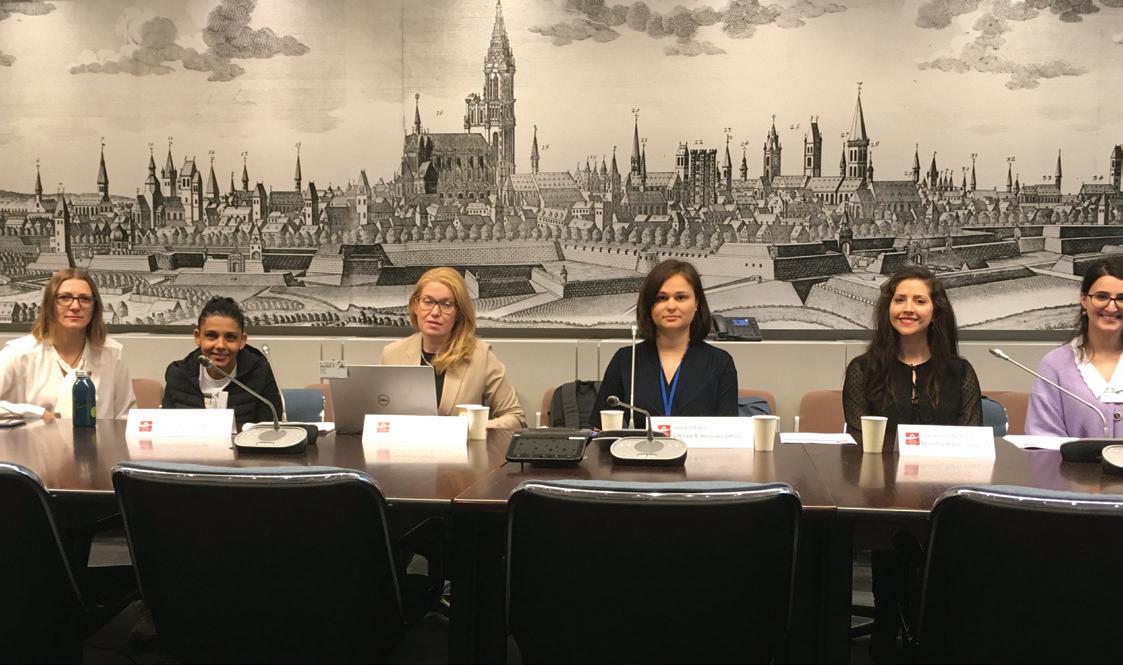
The decision in the Cristian Teodorescu v. Romania and Parascineti v. Romania cases, which concern unlawful psychiatric detention and conditions in psychiatric hospitals, was particularly strong: It instructed the Secretariat to prepare an interim resolution, and included a recommendation to the authorities of other CoE member States to raise the issues at stake in these judgments in their contacts with Romanian authorities, a call which is quite exceptional at CM level. This decision reflected the impact of the briefing and was also the result of the evidence and procedural recommendations set forward by the Centre for Legal Resources. Cristian Teodorescu v. Romania and Parascineti v. Romania cases, which concern unlawful psychiatric detention and conditions in psychiatric hospitals, was particularly strong: It instructed the Secretariat to prepare an interim resolution, and included a recommendation to the authorities of other CoE member States to raise the issues at stake in these judgments in their contacts with Romanian authorities, a call which is quite exceptional at CM level. This decision reflected the impact of the briefing and was also the result of the evidence and procedural recommendations set forward by the Centre for Legal Resources.
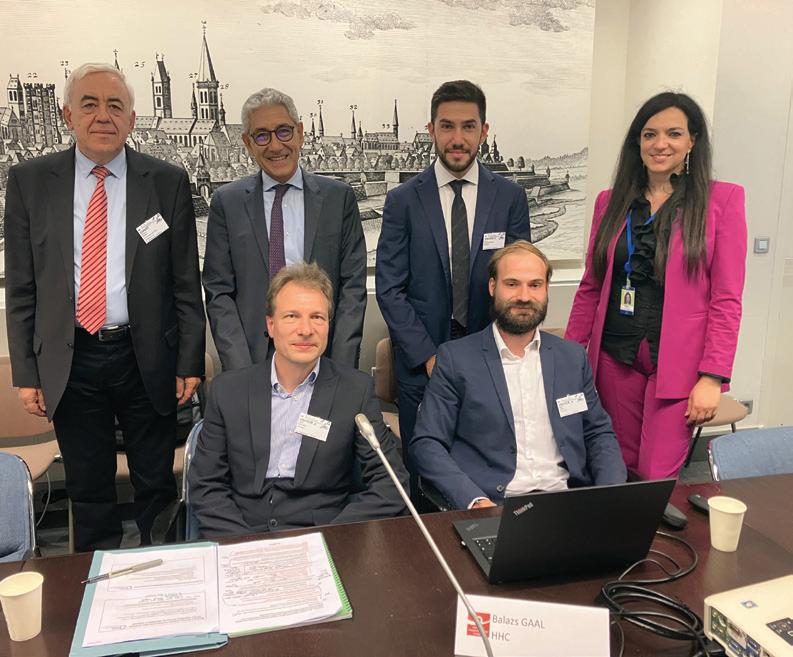
In September, the third quarterly briefing focused on Ilias and Ahmed v. Hungary (concerning the non-Convention-compliant removal of two asylum-seeking applicants to Serbia), Safi and Others v. Greece (concerning operational omissions in relation to a shipwreck involving asylum-seekers, which resulted in the loss of lives, and ineffective investigation into these omissions), Umo Ilinden and Others v. Bulgaria group (refusals of the national courts to register associations aiming at recognising and protecting the interests of the Macedonian minority in Bulgaria), and McKerr v. the United Kingdom (concerning ineffective investigations into the deaths of the applicants’ next-of-kin in Northern Ireland during the Troubles period).
In view of the prolonged absence of tangible progress in the individual and general measures required for the execution of judgments in the Umo Ilinden and Others group, the CM decided to invite the Chair of the Committee of Ministers to send a letter to his Bulgarian counterpart, underlining the need to find swift solutions to abide fully and effectively by the obligations deriving from the Court’s judgments in these cases. The Bulgarian Helsinki Committee, long-standing member of EIN and a strong voice advocating for the effective implementation of these judgments, had called for this development at the September briefing to the delegations.
The December briefing dealt with cases concerning freedom of expression of magistrates (Baka v. Hungary), the lack of protection against homophobic attacks (Identoba and Others v. Georgia) and the landmark case of Selahattin Demirtaş (no. 2) v. Türkiye, concerning the arrest and pre-trial detention of, and criminal proceedings against, the applicant, a member of the National Assembly and one of the leaders of the Peoples’ Democratic Party.
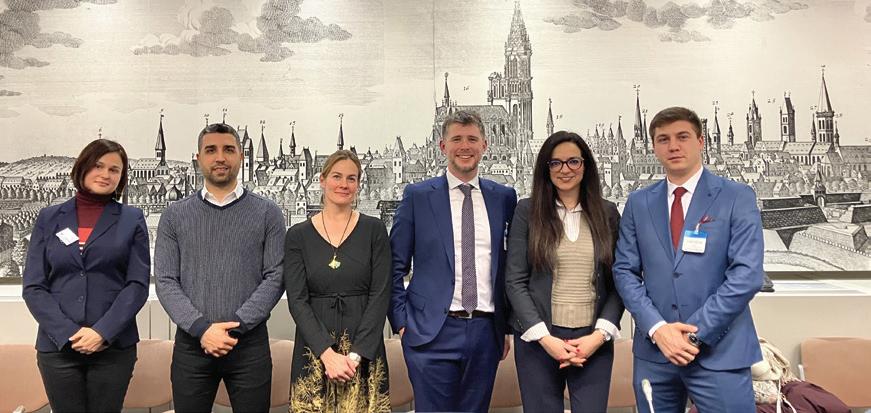
EIN has organised periodic briefings about the Selahattin Demirtaş (no.2) case (including in September 2022 and December 2023); for the past two years, Mr. Demirtas’s lawyers, as well as civil society organisations involved in this case, have been calling on the Committee to explicitly address the fact that the applicant’s ‘new’ pre-trial detention was a continuation of his initial detention based on the same facts and pieces of evidence as the ones impugned by the Court in its judgment under examination. A first important breakthrough was achieved in December 2023, when the Committee expressed doubts about the Turkish authorities’ argument that Mr. Demirtaş is currently detained based on different proceedings. The oral presentation of civil society’s arguments at the briefing significantly contributed to this development.
Section
4.1. Support for the submission of effective Rule 9 communications
In 2023, EIN reviewed and provided feedback on 41 draft written submissions, prepared by its members and partners. This included, in part, support funded through Etkiniz, an EU programme aimed at building the capacity of Turkish NGOs to monitor compliance with international standards.
The EIN Secretariat was happy to note that a number of EIN’s most long-standing and experienced members and partners are progressively in declining need of support in terms of thorough reviews of their submissions, and only benefit from EIN’s assistance on specific complex legal and technical questions. In 2023, such targeted assistance was offered in approximatively 60 cases monitored and engaged with by NGOs, lawyers and applicants within our network. This support consisted particularly in responding to questions regarding the scope of implementation, evidencing of submissions, access to documents submitted by the authorities, timing of submissions, providing resources, giving legal advice, and organising calls and meetings with the Department for the Supervision of the Execution of ECtHR Judgments at the Council of Europe. This demonstrates that EIN’s capacity-building efforts produce tangible results: A number of NGOs supported by EIN becomes gradually independent in effectively engaging with the implementation mechanism, leaving room for new NGOs to approach and be assisted by EIN.
4.2. EIN Trainings
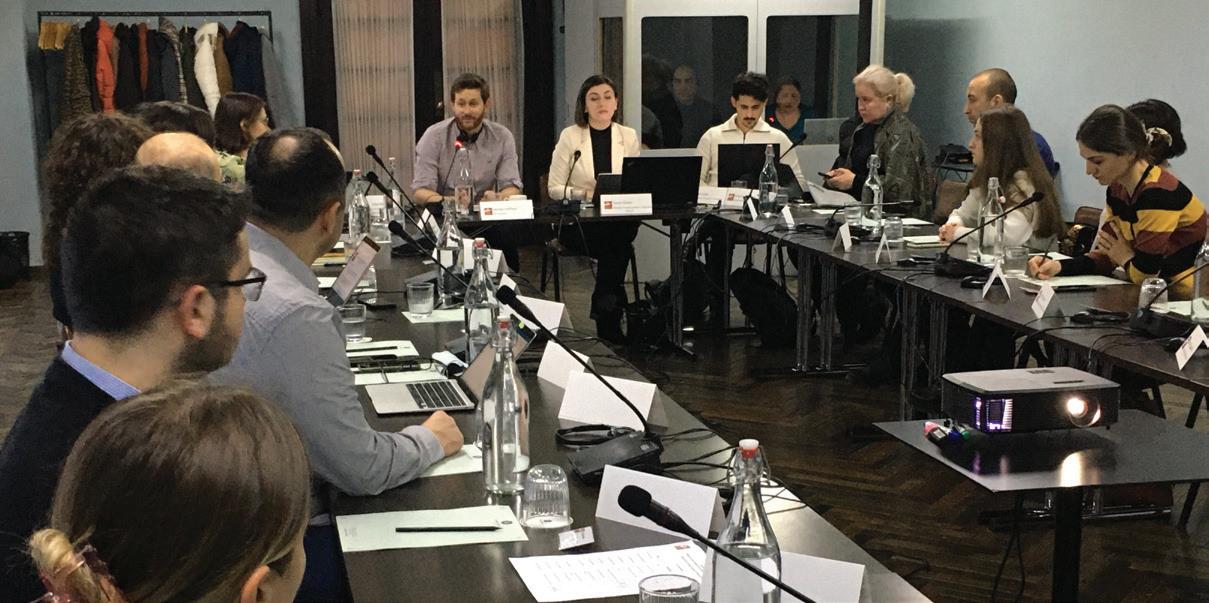
End March, EIN organised a visit followed by an in-person workshop in Strasbourg focusing on the implementation of judgments related to psychiatry, mental health and disability rights in Romania. Exchanges were also organised with relevant stakeholders in Strasbourg, such as lawyers from the Department for the Execution of Judgments and the Council of Europe Commissioner’s Office. This event took place in the frame of a project run by the Center for Legal Resources, a Bucharest-based NGO working on disability rights. Background information about relevant ECtHR psychiatry-related judgments in Romania had been provided by EIN Law and Advocacy Officer Ioana Iliescu.
Mid-February, EIN organised a training for NGOs and lawyers in Tbilisi, Georgia, with the support of the Georgian Young Lawyers Association GYLA . This training aimed to enhance the capacity of civil society in Georgia to engage with the process of implementation of ECtHR judgments. This event took place in the frame of the project run jointly by the Netherlands Helsinki Committee and EIN, which ended in March 2023.
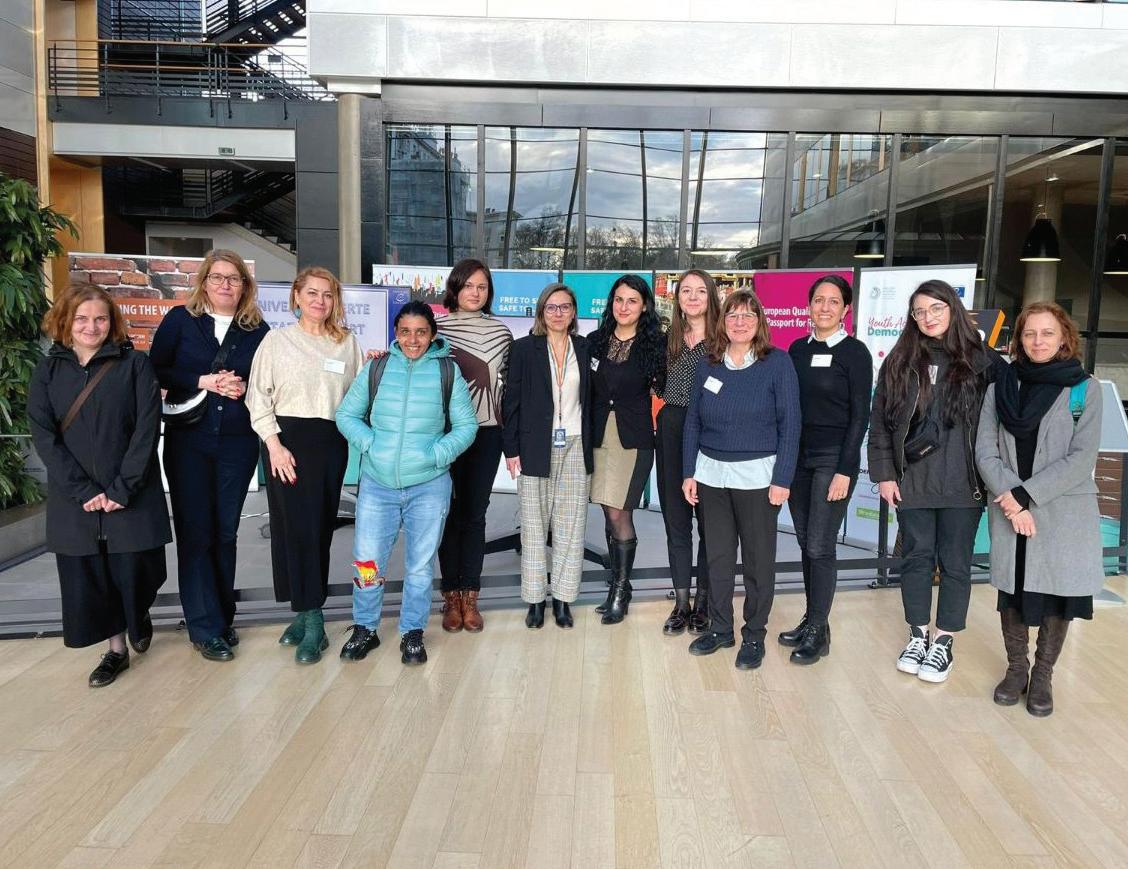
In July, EIN partnered with Transgender Europe and proposed an online training aimed at sharing knowledge and experiences for those advocating for legal gender recognition, with a view to holding their governments accountable for failures to effectively implement relevant ECtHR judgments.
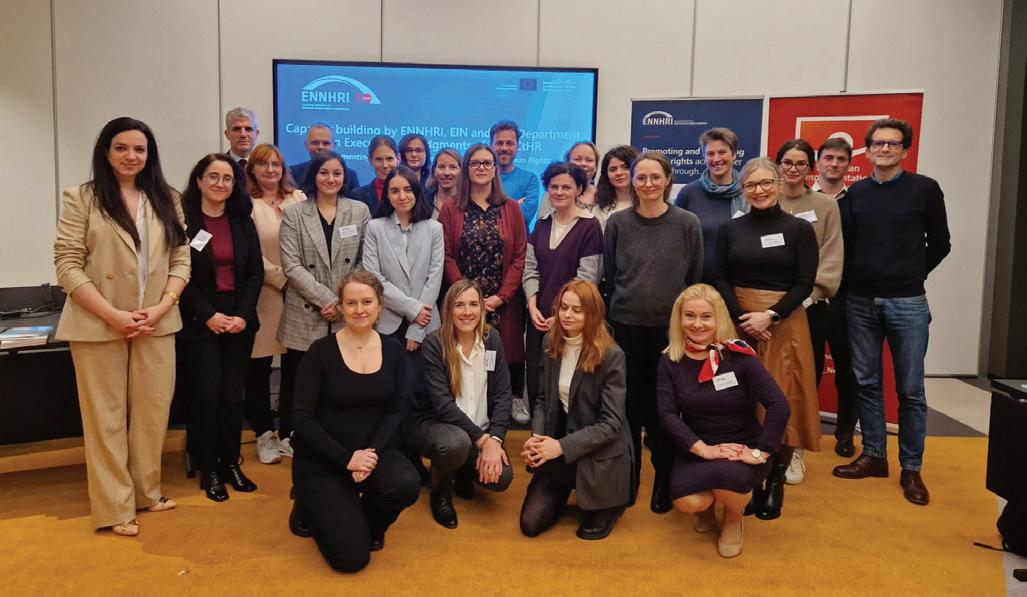
Following the very successful webinars organised for National Human Rights Institutions (NHRIs) in 2020, during the Covid pandemic, the European Network of NHRIs (ENNHRI) reached out to EIN to organise a new training for NHRIs with physical presence. This training, which took place mid-November in Strasbourg, was facilitated jointly by EIN, the Department for the Execution of Judgments, and ENNHRI. The objective was to enhance the capacity of NHRI representatives to take part more actively in the implementation process.
A large-scale training of civil society representatives on the effective implementation of freedom of expression judgments was organised in the context of EIN’s conference in Leipzig (see section 2.2). EIN has also held two smaller-scale trainings for new staff of the Media Law Studies Association (Türkiye) and of the Border Violence Monitoring Network. Overall, in 2023, EIN provided thorough training to over 140 civil society activists and lawyers. It furthermore provided insight into the implementation procedure and advice on effectively engaging with the implementation mechanism at one of the RARE (Recharging Advocacy for Rights in Europe, a civil-society-run joint advocacy project) Camps, held in the Hague in September 2023, and in the margins of the biennial ECtHR litigators’ meeting, organised by the Strasbourg Court and Open Society Justice Initiative in October 2023 in Strasbourg.
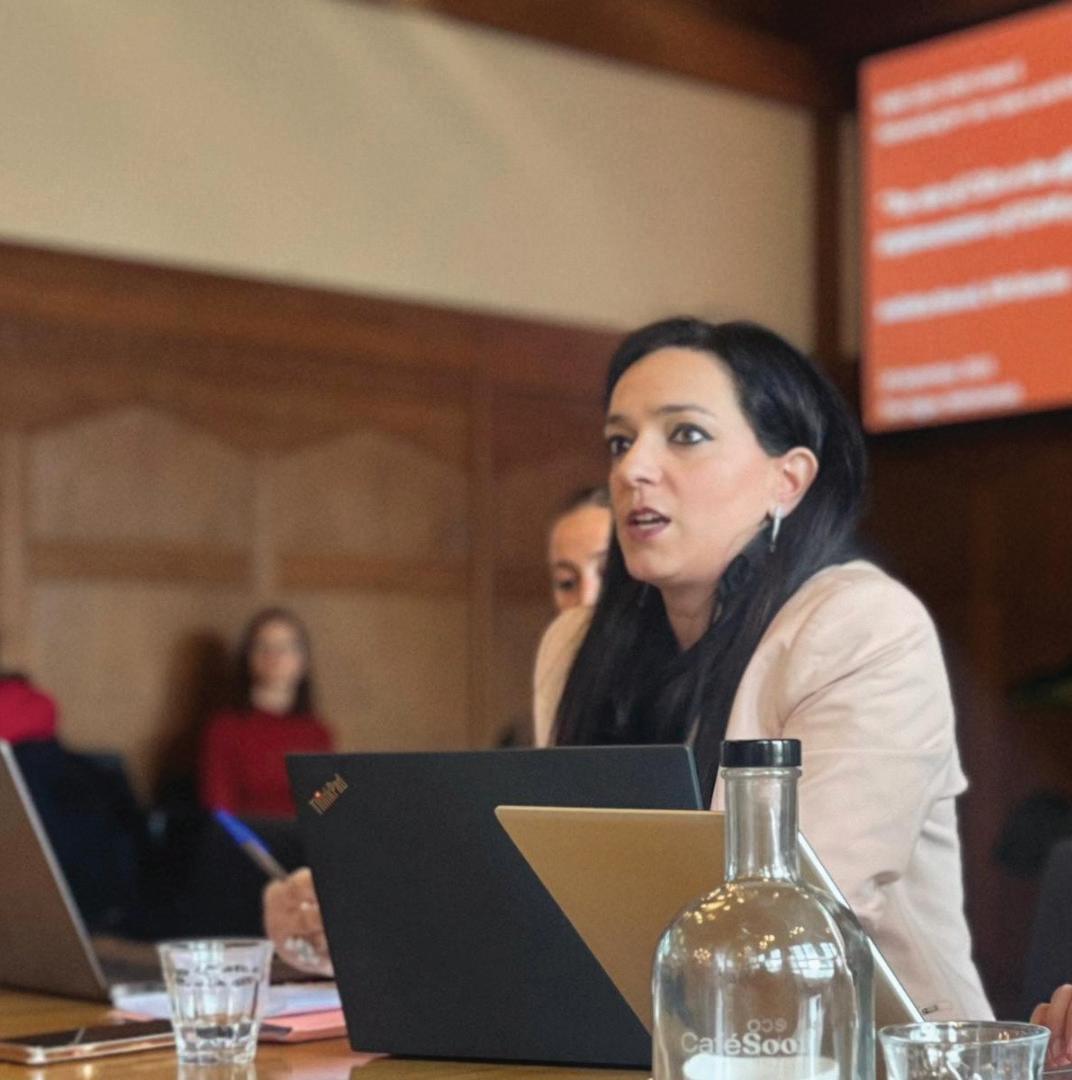
Section 5: Governance, staffing and finances
5.1.
EIN General Assembly
The 2023 EIN General Assembly was held online on 27 June. On this occasion, a partial renewal of the Board took place. Kerem Altıparmak and Anne-Katrin Speck were newly elected, whilst Krassimir Kanev, Panayote Dimitras and Marcin Szwed, for the Helsinki Foundation for Human Rights, were re-elected for a second term. Krassimir Kanev was re-confirmed in his position as EIN Treasurer. Currently, the EIN Board counts 11 members.
5.2. Staffing

Following the departure, in mid-May, of George Stafford, Ioulietta Bisiouli was recruited in the position of EIN Director, her mandate having started in August 2023. Before joining EIN, Ioulietta, a Greek attorney-at-law, had held several roles in the Council of Europe for more than a decade, including a six-year experience at the Department for the Execution of Judgments. Her experience in the NGO sector includes, inter alia, a role as Amnesty International’s Executive Officer for the Council of Europe (ad interim).
5.3. Report by EIN Treasurer Dr Krassimir Kanev
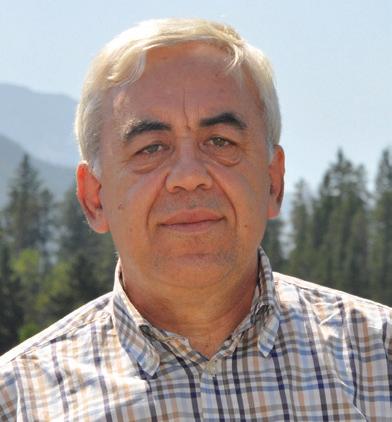
In 2023, EIN managed to secure new funding for two large-scale projects. A first project aimed at monitoring the track record of EU member States in implementing leading judgments of the ECtHR as an important indicator for the functioning of the rule of law, funded by the Mercator Stiftung, was launched in March 2023, and will last until February 2026. A second project, focused on the implementation of ECtHR judgments related to freedom of expression was launched in June 2023. This project, which will last two years, is funded through the Swedish Postcode Foundation, the Isocrates Foundation and the Fritt Ord Foundation.
In addition, EIN was able to secure EU funds through Etkiniz (a programme aimed at monitoring compliance with international standards) to provide support to Turkish NGOs working on rule 9s.
Early 2023, EIN also finalised the joint project with the Netherlands Helsinki Committee with a final training organized in Tbilissi, Georgia.
The expenditures which were not covered through project funding were allocated mainly to our core funders, i.e. Oak Foundation and the Sigrid Rausing Trust. We are grateful to our core funders for their ongoing support.
At the end of 2023, EIN still had about 115.000 EUR in reserve.
The tables below reflect the main information about EIN expenditures and income for 2023 and offers a simplified version of the costs by funders. The full version of the EIN audited accounts (which will be put on the EIN website after their approval) follow the French accountancy plan for associations.
Use of funds for 2023:
Core funders
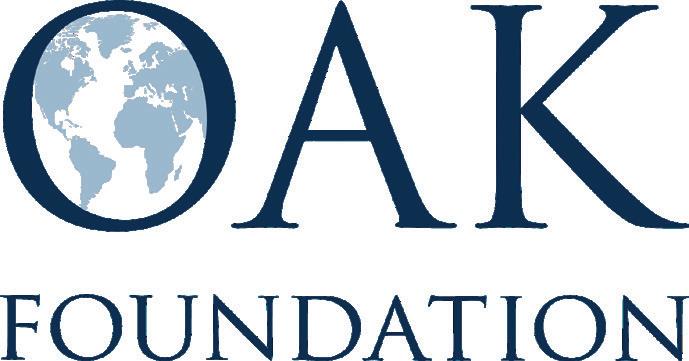
Project funding
